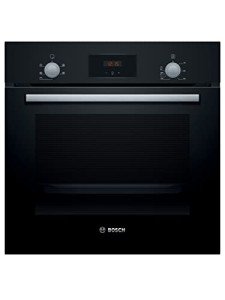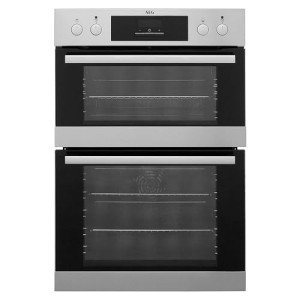15 Terms That Everyone Who Works In Built-In Oven Industry Should Know
페이지 정보
작성자 Shenna 작성일25-05-21 09:21 조회2회 댓글0건관련링크
본문

Understanding Built-in Ovens and Hobs: The Perfect Kitchen Combination
As contemporary kitchens evolve, built-in appliances are ending up being progressively popular for both performance and looks. Among these appliances, built-in ovens and hobs stand apart as vital elements for any cooking lover or home cook. This article checks out the advantages, functions, and factors to consider surrounding built-in ovens and hobs. It also attends to common concerns, using a comprehensive guide to these kitchen basics.
What are Built-in Ovens and Hobs?
Built-in ovens are integrated ovens into kitchen cabinets, developing a streamlined, seamless appearance. They come in various types, including traditional, convection, and steam ovens, each accommodating various cooking approaches. Hobs, on the other hand, are the cooking surfaces that incorporate with the kitchen countertop. They can be gas, electric, or induction, enabling cooks to choose based upon their cooking style and energy choice.

Benefits of Built-in Ovens and Hobs
- Space-Saving: Built-in models take full advantage of kitchen space by eliminating the requirement for freestanding units, producing an open and airy environment.
- Aesthetic Appeal: Their smooth design contributes to a modern, streamlined appearance in the kitchen.
- Improved Functionality: Built-in intergrated ovens typically include innovative cooking technology, providing a variety of features like self-cleaning and clever controls.
- Personalization: Manufacturers use a variety of surfaces and styles, enabling house owners to tailor their appliances to match their kitchen décor.
Kinds Of Built-in Ovens
1. Standard Ovens
Conventional ovens use glowing heat from the bottom and can be ideal for baking.
2. Convection Ovens
Stove have a fan that distributes hot air, Intergrated ovens guaranteeing even cooking. They minimize cooking time and are perfect for roasting meats or vegetables.
3. Steam Ovens
Steam ovens use moist heat to cook food, maintaining nutrients and tastes. They are ending up being increasingly popular amongst health-conscious cooks.
4. Microwave Ovens
These ovens offer quick heating and cooking and serve numerous functions, from reheating leftovers to baking.
Kinds of Hobs
1. Gas Hobs
Gas hobs utilize gas or lp for cooking. They supply immediate heat control, making them a preferred amongst professional chefs.
2. Electric Hobs
Electric hobs have strong or ceramic surfaces that heat up by means of electric coils. They are simple to tidy however may take longer to heat than gas designs.
3. Induction Hobs
Induction hobs utilize electro-magnetic energy to straight heat up pots and pans, offering fast heating and energy effectiveness. They cool down quickly and supply a safer cooking experience.
Factors to Consider When Choosing Built-in Ovens and Hobs
When selecting built-in ovens and hobs, a number of factors should be considered:
1. Area Limitations
Measure the available space in your kitchen to make sure that the appliances will fit flawlessly into the cabinets.
2. Cooking Style
Consider your cooking routines. If you regularly bake, a stove may be perfect. Meanwhile, induction hobs are terrific for security and efficiency.
3. Budget plan
Pricing varies substantially based on functions and brands. Setting a budget helps limit the options.
4. Energy Source
Determine whether you desire gas or electric appliances. This decision can impact cooking performance and energy costs.
5. Looks
Select surfaces and styles that match your kitchen's style. Stainless steel is a popular option for a contemporary appeal.
Comparison of Built-in Ovens and Hobs
| Feature | built-in electric ovens Oven | Built-in Hob |
|---|---|---|
| Type | Convection, steam, etc. | Gas, electric, induction |
| Cooking Versatility | High | Moderate to high |
| Cleaning Ease | Varies by model | Usually easy to tidy |
| Setup Style | integrated ovens for sale in kitchen cabinetry | Flush with countertop |
| Energy Efficiency | Differs by model | Induction typically most effective |
FAQs About Built-in Ovens and Hobs
1. Are built-in ovens more expensive than freestanding models?
Yes, built-in ovens normally feature a greater price due to their design and setup requirements. However, they typically provide more innovative functions.
2. Can I replace my existing freestanding oven with a built-in design?
Yes, it's possible to replace a freestanding oven with a built-in model, however you may need to make modifications to your cabinets and kitchen design.
3. What upkeep do built-in ovens and hobs need?
Regular cleansing is vital. Lots of built-in ovens come with self-cleaning functions. It's also crucial to keep the hobs devoid of spills and grease.
4. Are induction hobs safe for households?
Induction hobs are considered much safer than gas or electric choices since they only heat the cookware, reducing the threat of burns or mishaps.
5. How can I make the most of the performance of my built-in oven and hob?
To make the most of performance, always pre-heat the builtin oven when required, use the correct size pots or pans on the hob, and consider using the residual heat from your hob after cooking.
Built-in ovens and hobs provide numerous advantages, making them popular choices for modern kitchens. Their space-saving styles, advanced features, and visual appeal add to their high need. By thinking about aspects like area, cooking design, and budget, house owners can select the ideal combination of appliances that best suit their culinary requirements. Whether through gas, electric, or induction hobs, and a variety of oven types, the best built-in kitchen appliances can enhance the cooking experience while elevating the overall aesthetic of the kitchen.
댓글목록
등록된 댓글이 없습니다.












